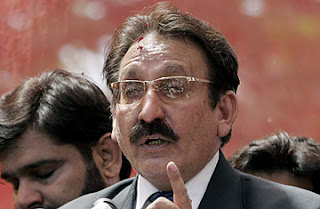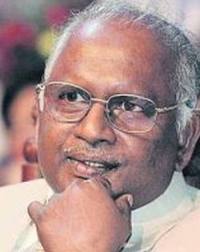Unsavoury tales of present Election of President
Politics and morality are
perhaps, at least in India, the two banks of a river which can never meet. The
way the Congress did stitch support for its nominee for the post of President
of India from a fragmented polity of UPA-II allies and those supporting it from
outside lends credence to this feeling.
The only difference and
saving grace this time has been that while Congress could road-roll its will in
nominating the present incumbent in the Rashtrapati Bhawan (RB) ignoring merit
and moral considerations, this time in the process of political maneuverability
to stage political upmanship it could not afford to sidetrack merit.
Credit for this goes
neither to the Congress nor to its supremo Mrs. Sonia Gandhi. This has rightly
been claimed by Samajwadi Party supremo Mulayam Singh Yadav who has stated that
his joining hands with Trinamul Congress chief and West Bengal chief minister
Ms Mamta Bannerjee and announcing a panel of 3 names – Dr. APJ Abdul Kalam, Dr.
Manmohan Singh and Somnath Chatterjee — hastened the process to make Congress announce
the name of Mr. Pranab Mukherjee.
Not first
choice
Mr. Mukherjee was not Mrs.
Gandhi's first choice. His name may have been propped up by some within the
party, yet she never jumped at the idea. Important party functionaries,
including spokesperson Mrs. Renuka Chaudhary, while accepting him to be the
best candidate, had proferred the excuse that the party could not afford to
'spare' the UPA and party's 'troubleshooter' and 'firefighter'. Though he could
not open up his heart, Mr. Mukherjee seemed reconciled to catching hold of his
lifetime's second best ambition to move to RB, his first choice being the post of PM
having gone beyond his reach under the present circumstances.
Mrs. Sonia Gandhi toyed
with the idea of having a pliant occupant of the RB who could read her mind and
act accordingly. Having failed to move to 7, Race Course Road herself, her last
wish remained to see her heir apparent to occupy the nation's top job of prime
minister. She is quite near realizing her dream but she knows, there are many a
slip between the cup and the lip. She is
alive to the reality that but for the then President Zail Singh deeply
committed to her mother-in-law, Mrs. Indira Gandhi, her husband could never
have been the prime minister. It was President Zail Singh who broke the fine
precedent of swearing-in the No. 2 in the cabinet following the death in office
of a prime minister. Mr. Rajiv Gandhi was in Kolkata when Mrs. Indira Gandhi
was assassinated. Giani Zail Singh withheld the news of Mrs. Gandhi's death
till Mr. Rajiv Gandhi landed in Delhi. He immediately sworn in Mr. Rajiv. Both
Mr. Rajiv and Mr. Mukherjee had travelled together in plane from Kolkata and
during the journey the latter had expressed the hope that as per the tradition
and precedent he would be sworn in as the acting PM.
Later, the relations
between Mr. Rajiv and President Zail Singh soured to such an extent that the
former started having nightmares of his dismissal and did not prorogue the
Parliament after the budget session of Parliament till a new incumbent had
taken over in place of Mr. Zail Singh.
As a report in the Times of India has indicated, the promise of
support by each other's internecine foes – Mr. Mulayam Singh Yadav and Ms
Mayawati – to a common candidate has raised eyebrows. It is a gin animated by
striking a backroom deal. The report
indicates that both had to fall in line because of the sword of Damocle of criminal cases
of assets beyond known sources of income hanging over the heads of both. A promise
of a go-slow or weakening of cases clinched the deal of support. Otherwise, why is it that the dragon of these
cases remains buried in silence under the debris of political maneuvers to be
unearthed only in times of need and emergency? RJD chief Lalu Prasad Yadav is similarly
placed. During UP state assembly elections held just three months back the
Congress and its heir apparent had been vigorously campaigning, though with
little success, to end the ‘corrupt’ regime of Mayawati and a vow not to let
the SP ‘goondaraj’ to usher in again. But in politics eating one’s own words is
the staple food of our politicians. For them it is a matter of pride.
Fissures in
NDA/UPA
Like last time, NDA ally
Shiv Sena has taken a stand different from the alliance. At that time it
supported incumbent President Smt. Pratibha Patil as she hailed from
Maharashtra, this time too it chose to support UPA's candidate for election to
the office of President.
JD(U) for consideration
extraneous to the election of President took a stand different from the BJP-led
NDA and decided to support Mr. Mukherjee although the NDA convener and JD(U)
President Shri Sharad Yadav has stressed that the support is for Mr. Mukherjee
and not for Congress and but for this, the alliance continues to be as strong
as ever.
There is also media
speculation that this casual friendship could be attempted to be cemented with
the grant of a special economic package for Bihar. Shri Nitish Kumar had been agitating
for it for the last over five years. His new found fondness for Mr. Mukherjee
may ultimately, some media reports speculate, blossom into Congress bartering
Shri Nitish Kumar's support with ultimate parting of ways with NDA to cozy up
with the Congress-led UPA. For Congress it would be a coup de tat; it will
bounce back to power with just four MLAs in a house of 243.
The candidature of Mr.
Mukherjee has sowed seeds of discord not only in NDA; the UPA too does not remain
unscathed. West Bengal Chief Minister, Sushri Mamta Banerjee, remains as defiant
as ever and despite best efforts by Congress leadership and the presidential
candidate who called her his "younger sister" has not so far been
able to bring her round. But Congress has not lost hope. It is continuing with
its efforts. As a last resort Congress could hold out a promise of a special
economic package for West Bengal — a bait she may be unable not to swallow.
Me 'secular',
you 'communal'
In politics everybody
claims himself to be 'secular' and brands his opponent as 'communal'. The
moment a 'communal' shifts sides, he becomes a 'secular' and vice versa. Mr. P.
A. Sangma has been taken to be a 'secular' leader. But now that he has quit NCP
and is contesting the election as an independent candidate supported by NDA
allies BJP and Akali Dal have extended their support to him, no wonder if his
opponents may now dub him as 'communal'.
Fingers have been raised
about the involvement of Mr. Pranab Mukherjee, in Scorpene and other deals. Mr.
Mukherjee's office
rejected Team Anna's allegations as "unfair" and
"self-seeking", reflecting lack of responsibility while claiming to
represent high standards of ethical behaviour.
Reiterating the need for an independent investigation into the allegations against him as a person aspiring to be the President "should be above board" the Team Anna retorted: "A person aspiring to be the President of India should be above board. You would agree that a person facing so many serious charges would bring disrepute to the position of president if he were not absolved of all these charges before being appointed on that post. Therefore, we demand independent investigations into all these charges before you are considered for this position."
Reiterating the need for an independent investigation into the allegations against him as a person aspiring to be the President "should be above board" the Team Anna retorted: "A person aspiring to be the President of India should be above board. You would agree that a person facing so many serious charges would bring disrepute to the position of president if he were not absolved of all these charges before being appointed on that post. Therefore, we demand independent investigations into all these charges before you are considered for this position."
It is
true that a complainant cannot assume to be the judge himself. But equally true
is the fact that the accused too has no right to hand out a verdict of
"not guilty" for himself. It is only through an impartial and
independent inquiry that truth can come out and prevail. Suspicions will linger
on till that is done. And once a person gets elected to the highest office, he
earns immunity and however solid or flimsy the allegations may be, these get
pushed below the carpet of this immunity.
In all
fairness, a person should not enjoy immunity from prosecution for an offence
which he/she committed not as a President or governor but in the performance of
his duties earlier while holding some other public office. We have instances of
diehard criminals getting elected as MLAs or MPs but still rubbing their heels
in jails. An election should not bestow an immunity from prosecution of any
individual, high or low.
The way
allegations of bartering of support with favours in criminal cases pending
against the likes of Mr. Mulayam Singh Yadav, Sushri Mayawati, Lalu Prasad
Yadav and the like, or with the special economic packages at public expense are
a blot on the name of our democracy. This derails the EC effort to make every
candidate contest from from an equal pedestal.
Unfortunately,
it is also for the first time that the present incumbent and the present
contestant for the office of President are faced with such allegations.
Comparison
In
comparison, Mr. Sangma may not have enjoyed that long an inning in politics as
does Mr. Mukherjee, yet whichever public office Mr. Sangma held, including that
of Speaker of Lok Sabha for a year and a half, he did leave an indelible
imprint. On the contrary, Mr. Mukherjee's performance during UPA-II has not
been that spectacular either as External Affairs Minister or later as Finance
Minister. The country's economy and rupee witnessed a historic downslide. The
prices and inflation were skyrocketing. The aam aadmi suffered the most. His
election as President will, in a way, amount to putting premium on
non-performance and inefficiency.

